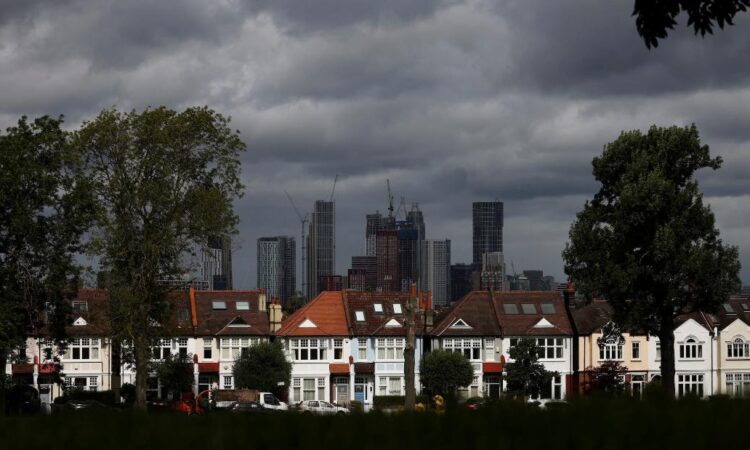
London(CNN) UK house prices last month saw their biggest annual decline since November 2012, in the latest indication of the lasting pain that former Prime Minister Liz Truss’s ill-fated “mini” budget inflicted on Britain’s property market.
The average price of a house fell 1.1% to £257,406 ($310,000) in February compared with a year earlier, taking UK house price growth into negative territory for the first time since June 2020, lender Nationwide said Wednesday.
House prices have now declined for six months in a row and are 3.7% below their August 2022 peak, according to Nationwide’s index based on purchases involving a mortgage.
“The recent run of weak house price data began with the financial market turbulence in response to the mini budget at the end of September last year,” Nationwide’s chief economist Robert Gardner said in a statement.
“While financial market conditions normalized some time ago, housing market activity has remained subdued,” reflecting “the lingering impact on confidence, as well as the cumulative impact of the financial pressures that have been weighing on households for some time,” he added.
The “mini” budget unveiled in September by Truss and then-finance minister Kwasi Kwarteng collapsed UK bond prices, sent borrowing costs soaring and sparked chaos in the mortgage market, as lenders withdrew hundreds of products, and deals fell through.
“The economy has largely moved on from the mini budget, but the hangover for the UK housing market is more prolonged. We’re still seeing the effects of higher mortgage rates in the last three months of last year,” said Tom Bill, head of UK residential research at broker Knight Frank.
Surging food and energy costs alongside feeble pay growth have also taken a bite out of household budgets, weighing on consumer confidence and housing market activity.
“Inflation has continued to outpace wage growth, and mortgage rates remain significantly higher than the lows recorded in 2021,” said Gardner at Nationwide. “Even though consumer sentiment has improved in recent months, it is still languishing at levels prevailing during the depths of the financial crisis.”
According to Bill, activity since Christmas has been “solid” but prices still have further to fall. He expects a decline of 5% this year.
“House prices are 20% higher than they were before the pandemic and we expect around half of this to unwind over the next two years as buyers revise down their budgets,” Bill said.
Mortgage rates have started to fall but recent stronger-than-expected UK economic data could lead the Bank of England to keep interest rates higher for longer, causing the downward drift in mortgage rates to “stall,” he told CNN. “That’s something we’re keeping an eye on.”
— This is a developing story and will be updated.






